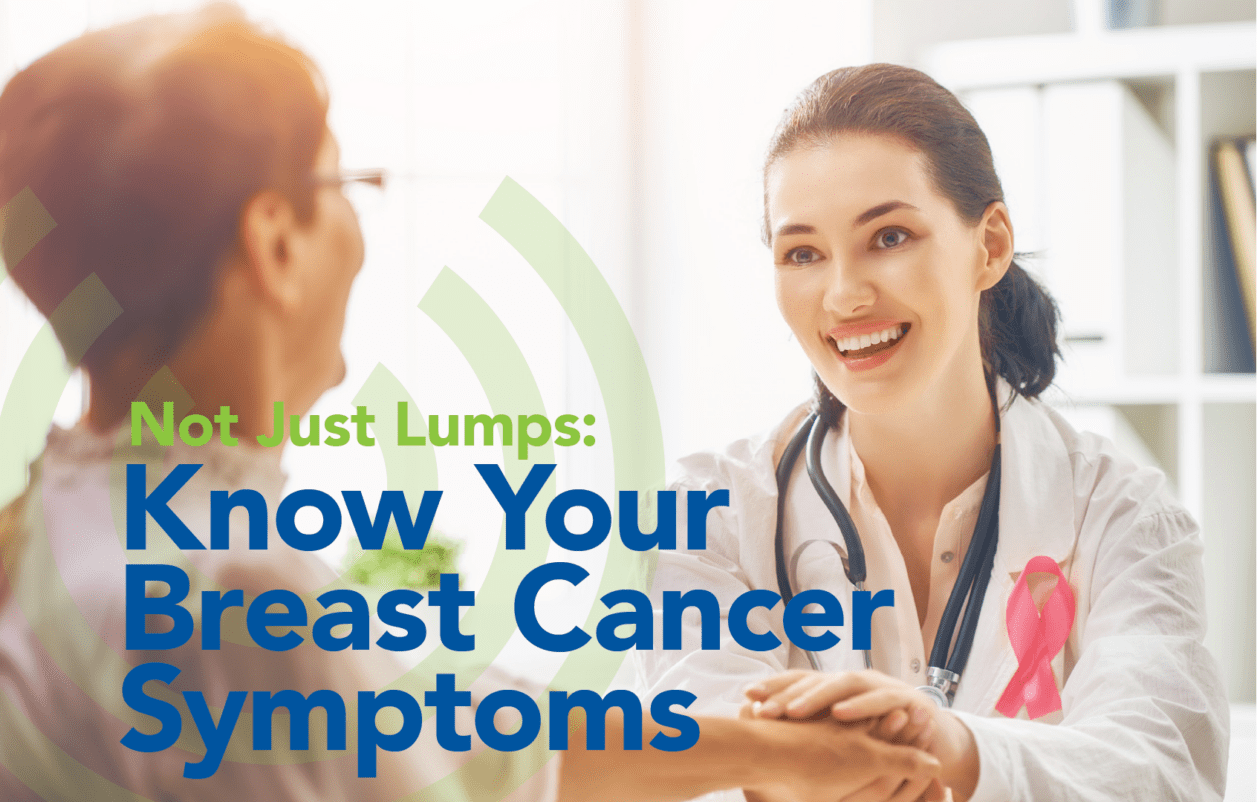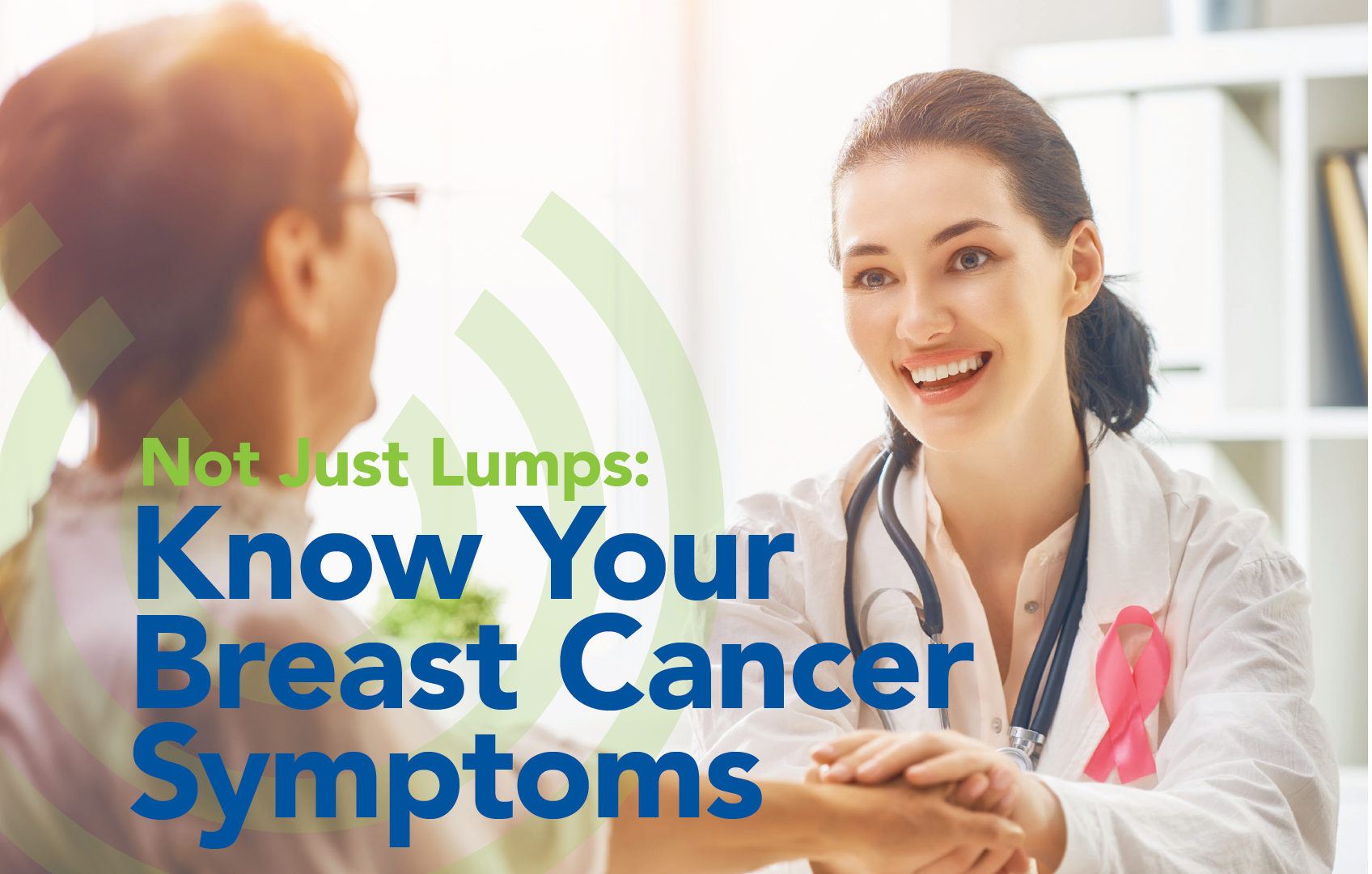

I found a lump in my breast.” We hear this line most often concerning breast cancer detection, but breast cancer can exhibit other signs, too. Some may be due to benign causes, but see your doctor if these signs persist or worsen:
1. A thickening inside your breast or in your breast skin.
2. A dimple or indentation in your breast.
3. A crust on your nipple.
4. Redness, swelling, or heat in your breast that doesn’t go away with antibiotics.
5. Nipple discharge not associated with developing breasts, infection, cysts, pregnancy, or breastfeeding.
6. Skin sores developing on your breast, usually associated with a hard lump.
7. A bump on the breast. (These can also be benign lumps or cysts.)
8. A nipple that flattens or turns inward.
9. Newly appearing blood vessels or veins on the breast or near the collarbone (if not connected to weight gain, breastfeeding, or Mondor’s disease).
10. Changes in breast size, flattening, swelling, or drooping, not due to breastfeeding or menstruation.
11. Your breast looks like the dimpled skin of an orange and might change color. This is a sign of inflammatory breast cancer.
12. A hard, immovable lump deep in your breast is the most common breast cancer symptom, though it may also be a cyst.
When A Mammogram is Not Enough
Dense breasts can spell the difference between finding a tumor and missing one. Dense br easts and tumors look similar on a mammogram, so further screening like ultrasound or a breast MRI may be needed. Talk to your doctor.
Eight Ways to Lower Your Risk
RBOI radiation oncologist Dr. C. Joseph Bennett recommends the following to lower your breast cancer risk:
1. Avoid being overweight. Try to maintain a body-mass index under 25.
2. Eat a healthy diet, including vegetables, fruit, lean protein, whole grains, and vegetable oils. Try to avoid sugared drinks, refined carbohydrates, fatty foods (including animal fats), and red meat.
3. Keep physically active. A 30-minute walk, five days a week, can reduce your risk.
4. Avoid alcohol: no more than one drink per day.
5. Don’t smoke. RBOI tobacco cessation specialist Wendy Hall, LCSW, can help you quit. Call her at 352-527-0106.
6. Avoid hormone replacement therapy if possible.
7. If you give birth, breast-feed your babies for as long as possible.
8. If you are at high breast cancer risk, consider taking an estrogen-blocking drug. Talk to your doctor if you have a family history of breast cancer or are over age 60.

Write a comment: